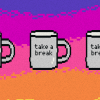Why soft skills could be your strongest career asset

When we talk about preparing for the world of work, it's easy to picture a checklist of technical abilities. Coding languages, accounting standards, engineering expertise – the kinds of things you can write on a CV and neatly demonstrate in a test. But new research suggests that what really matters for long-term success may not be these job-specific skills at all. Instead, it's the more flexible, often overlooked abilities – the so-called 'soft skills' that help people adapt, grow, and thrive in a rapidly changing workplace.
A recent article in Harvard Business Review aptly titled 'Soft skills matter now more than ever' argues that skills like collaboration, adaptability, problem-solving, and even basic mathematical reasoning are more predictive of career success than the highly specialised expertise people often chase. The article, based on a recent study published in Nature, titled 'Skill dependencies uncover nested human capital', takes an even closer look at the structure of skills themselves. Analysing a vast dataset of over 1,000 occupations and hundreds of skills, including 70 million career moves, the researchers found that most advanced technical skills actually rest on a bedrock of broader, more general abilities. In other words, the more solid your foundations are, the higher you can build.
This 'nested skill structure', as the study calls it, explains a lot about how careers unfold. People who focus too narrowly on niche skills may find themselves stuck when industries evolve, technologies shift, or entire jobs disappear. On the other hand, those who invest in developing adaptable, general strengths – such as communication, teamwork, or analytical thinking – can more easily pick up new expertise and move into fresh opportunities.
Think about it like learning a language. If you have a strong grounding in grammar, vocabulary, and sentence structure, it becomes much easier to pick up new expressions or even another language altogether. Without that foundation, every new phrase is a struggle. Work is similar. Someone who knows how to collaborate effectively, ask good questions, or think critically can plug those abilities into different industries, tools, and contexts.
The shift matters because workplaces are changing faster than ever. Generative AI, for example, is already reshaping whole industries, taking over routine tasks while creating new opportunities that didn't exist a few years ago. Jobs that once seemed safe can suddenly vanish, and careers are no longer the steady, linear journeys they were for earlier generations. Employers increasingly value people who can adapt and learn on the go – qualities rooted in soft skills rather than a single hard-earned certificate.
It's not just individuals who benefit. Companies, too, are recognising that their long-term success depends on building teams with strong foundational strengths. A workforce that can communicate, share knowledge, and adapt together is better positioned to weather technological change or shifts in the market. As one of the examples in the HBR article notes, when Google looked into what made its best managers effective, technical brilliance wasn't at the top of the list – it was skills like coaching, listening, and supporting team development.
Of course, technical skills still matter. Nobody would want to board a plane flown by a pilot who only knows how to "collaborate well" but has never mastered flight controls. The point isn't that expertise is irrelevant, but that it's fragile without a solid foundation underneath. Specialised knowledge is what gets you started in a role; foundational skills are what carry you forward when the role itself changes.
Another important insight from the Nature study is how inequalities can play out in the labour market. Because general and foundational skills open the door to so many opportunities, people without strong access to them often end up trapped in narrower roles with fewer prospects for growth. Over time, this contributes to wage gaps and stalled careers, especially for underrepresented groups. For young professionals, this is a reminder that building flexible strengths isn't just smart for career growth – it's also part of what levels the playing field in a competitive job market.
So what does this mean for fresh graduates or anyone about to enter a new workplace? First, don't underestimate the power of the basics. Being able to work well in a team, explain your ideas clearly, solve problems under pressure, and adapt when plans change are qualities employers notice and remember. Second, view technical skills as tools rather than endpoints. You'll keep learning new ones throughout your career, but they'll come easier if your foundation is strong. Finally, think of your career as less of a straight ladder and more of a series of pivots. The stronger your core abilities, the smoother those pivots will be.
In a way, this should be encouraging. You don't need to know everything at once, nor do you need to panic about mastering every new tool the moment it appears. What matters most is becoming the kind of person who can keep learning, keep adapting, and keep building on a solid base. Employers are watching for those qualities, and in a workplace defined by change, they could turn out to be your greatest asset.

 For all latest news, follow The Daily Star's Google News channel.
For all latest news, follow The Daily Star's Google News channel. 








Comments